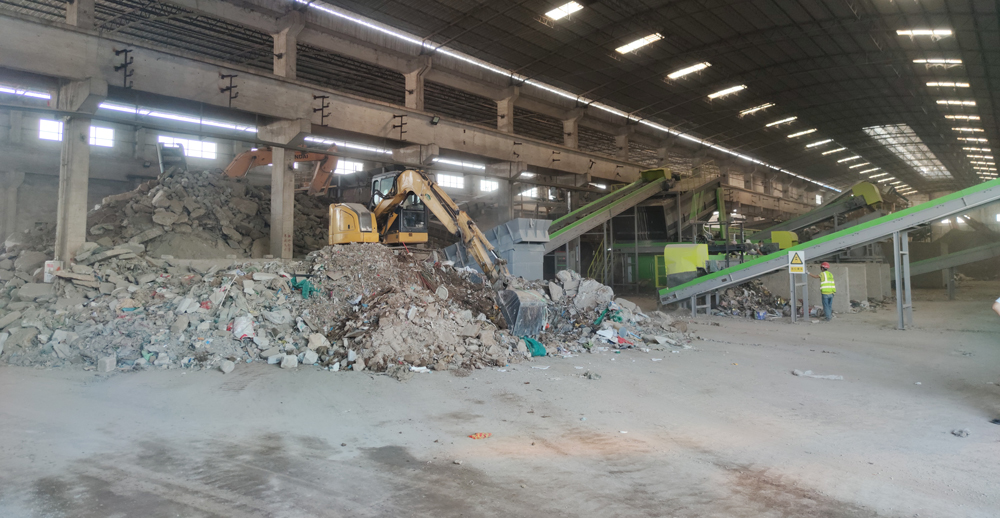 Time:2024-11-14
Time:2024-11-14
 Source:青绿环境
Source:青绿环境
Renovation waste refers to various types of waste generated during the decoration and renovation of houses, including waste plastics, waste paper, waste wood, as well as some construction slag and concrete blocks. If these wastes are not properly disposed of, they will not only occupy a large amount of land resources but also cause serious environmental pollution. Therefore, it is particularly important to process them through waste sorting equipment for resource recovery.

Waste sorting equipment is one of the key tools for the resourceful treatment of renovation waste. These devices typically include various types such as magnetic separators, air classifiers, and drum screens, which can effectively separate different types of waste. For example, magnetic separators can use magnetic forces to separate waste containing metal components; air classifiers use wind power to blow away lightweight materials such as paper scraps and plastic films; drum screens classify materials of different sizes through screens with varying mesh sizes.
In practical applications, renovation waste first needs to be collected and then transported to a dedicated treatment center. Here, workers use various waste sorting devices to conduct preliminary screening of the waste. After preliminary screening, the waste is divided into several major categories: recyclables, hazardous waste, kitchen waste, and other waste. Recyclables include waste paper, waste plastics, waste metals, etc., which can be reused through further processing; hazardous waste such as waste batteries and fluorescent tubes requires special treatment; kitchen waste can be composted; and other waste may need to be landfilled or incinerated.
For recyclables, they can be compacted and baled to reduce volume, making them easier to transport and store. Additionally, chemical methods can be used to convert these materials into fuel oils or other useful chemicals. For instance, waste plastics can be converted into diesel or other fuel oils through pyrolysis reactions, and waste paper can be turned into pulp for the papermaking industry.
In summary, the application of waste sorting equipment not only increases the resource recovery rate of renovation waste but also effectively reduces environmental pollution. With the continuous advancement and improvement of technology, it is believed that more efficient and environmentally friendly treatment methods will emerge in the future, bringing more convenience to our lives.













 Prev
Prev











